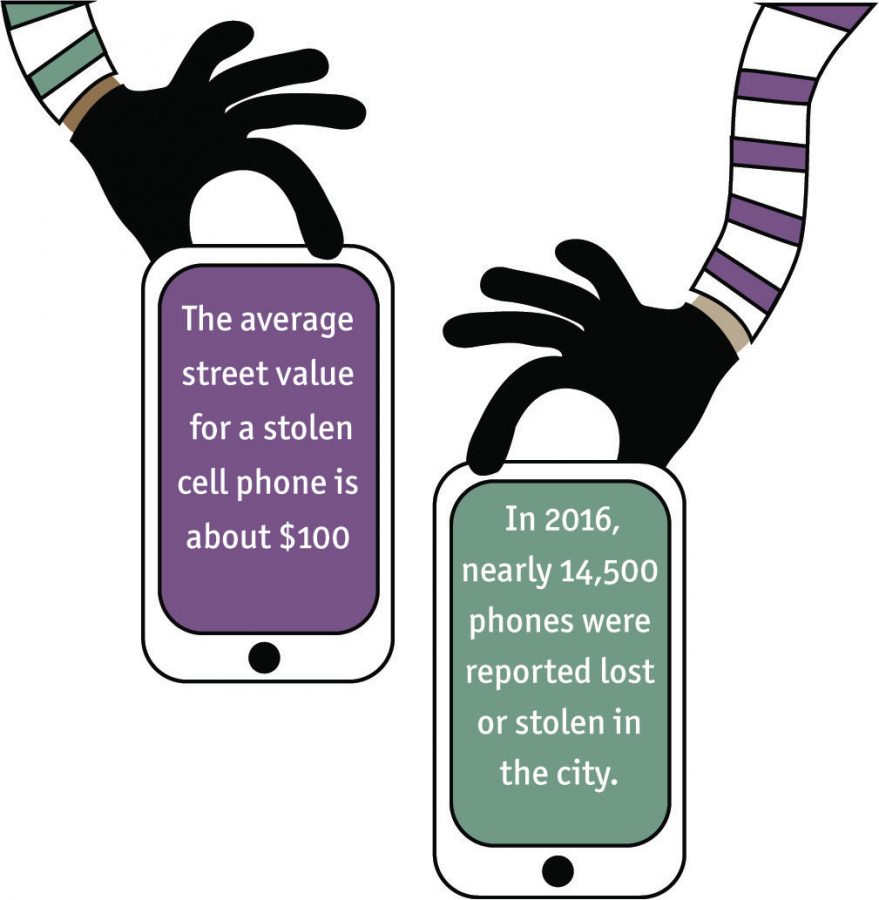City Hall cracks down on cell phone black market
City Hall cracks down on cell phone black market
September 18, 2017
Cell phone retailers now need to take extra precaution when accepting used cell phones from walk-in customers.
Businesses that resell cell phones must now cross check all their products with the city’s stolen phone database, under a new ordinance City Council passed Sept. 6. Violators can have their business licenses revoked, according to the new law.
“[This] should help, especially with seniors citizens because their phones are getting stolen,” said Evelyn Washington, chairwoman for the Senior Advisory Board for the City of Chicago. “They’re terrified to mess around with new gadgets because they’re scared [the phones] are going to be taken.”
The new regulation expands a 2014 ordinance that required cell phone unlocking services to keep records on customers and the devices they unlocked.
About 14,500 cell phones were stolen in Chicago in 2016. Cell phones on the black market rarely lose value, and the Chicago Police Department estimates that they can be sold for $100 or more depending on the brand, according to a Sept. 6 press release from the Mayor Rahm Emanuel.
Over Labor Day weekend, the city launched operation “Cell U 1,” a joint operation between the CPD and the Department of Business Affairs and Consumer Protection, which recovered $5,000 worth of stolen phones from the XL Wireless on Cicero Ave.
After attempting to sell stolen phones, the business was shut down and the owner charged with a felony. All resellers or trade-in-phone companies will be required to comply with the amended ordinance, including major phone providers such as AT&T, Verizon, Sprint or T-Mobile.
“If we get a phone for trade-in, we have to put in the model number,” said Jennifer S., team leader for Target Tech Department, 1154 S. Clark St., who asked her name to be withheld. “If the model number is reported stolen in our system, it’s not going to show it’s stolen. [The system] just won’t accept it.”
While new laws are a good step forward, Jennifer said phone theft will be halted by technological advances in the phones themselves.
“Phones should automatically lock,” Jennifer said. “The finger print [scanner] that Samsung and Apple have is going to stop [more] people from stealing phones.”
New regulations have some victims of phone theft optimistic the crime rate will decrease.
Elise Bloedow, a sophomore theatre major, said her phone was stolen out of her back pocket on a Red Line train in fall 2016. When she was exiting the train at the Harrison station, she realized her phone was missing. Had the stricter regulations been in place last year, she said her phone might not have been taken. It had been smashed in a car door a week before.
“It was a messed up phone in the first place,” Bloedow said, “with everything they would have had to go through to get [the phone] unlocked, I don’t think they would have found it worth it.”








